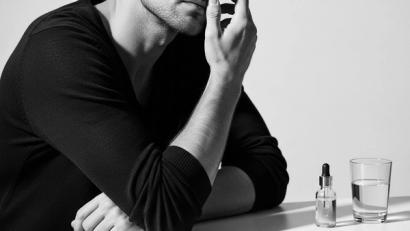
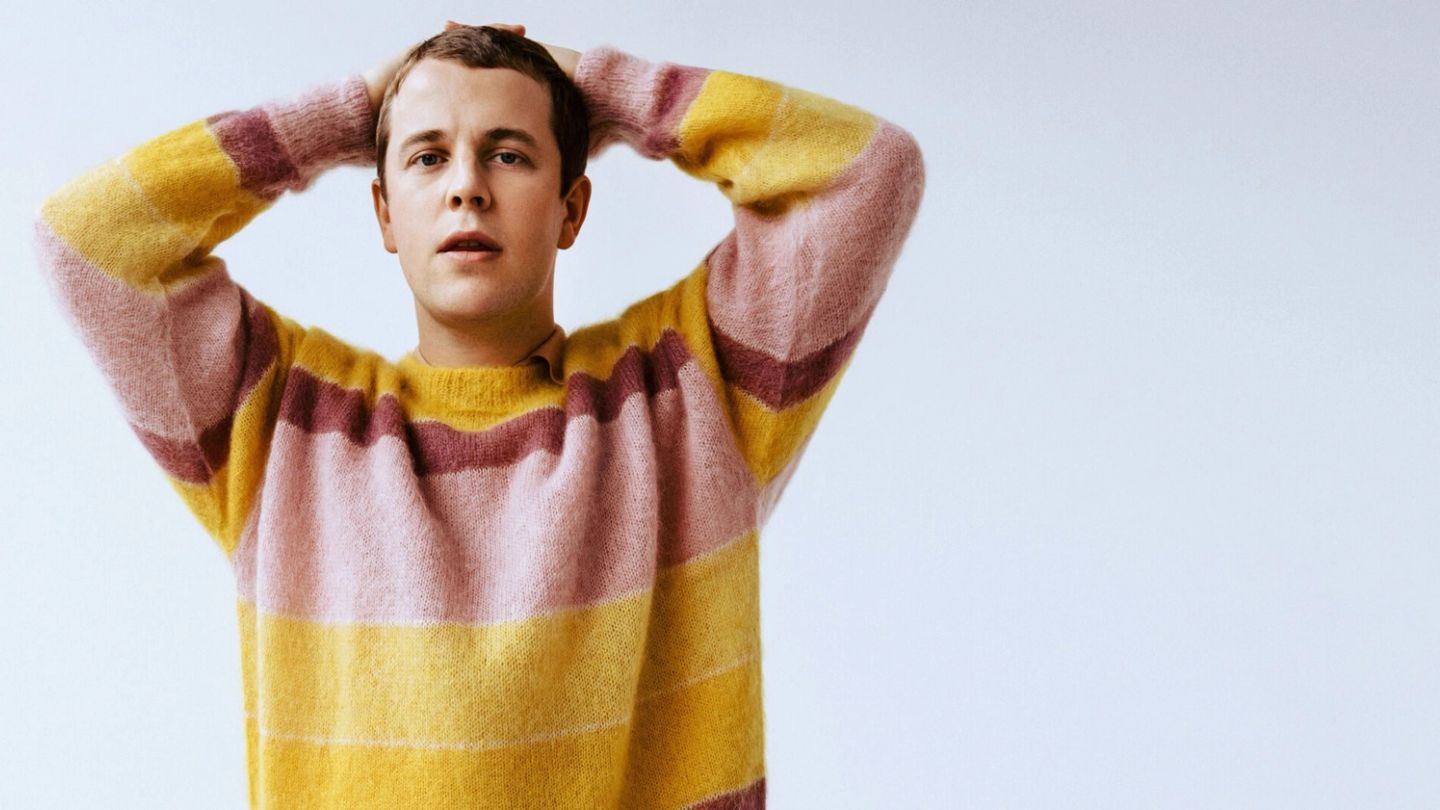
Tom Odell talks money, mental strife — and monsters
"I feel like I am meant to say to you that I have anxiety because I had a deeply traumatic childhood. But actually I have anxiety because the world is f**ked…”
- Words: Eleanor Halls
- Photography: Adam Fussell
- Styling: Anish Patel
- Grooming: Laura Dexter
Existential crises have loomed large for most of us during lockdown — even for platinum-selling, Ivor Novello-winning songwriter Tom Odell.
Last March, the 30-year-old British musician was recording his soon-to-be released fourth album at his makeshift home studio near Victoria Park, East London, when he began to feel increasingly uneasy.
“I had this deep sense that my role, my job I suppose, had just become… obsolete,” he says, plainly, leaning back on his chair in a scruffy grey hoodie one sunny Monday morning over Zoom, having just finished an hour of yoga to atone for the entire bottle of mescal he drank the night before. Behind him, a small brown piano is squashed up against an old sofa, while a couple of microphones stick out on the side like split ends.
“I think because of the urgency of the pandemic, so many things just started to feel superfluous, and the role of the songwriter just felt silly,” continues Odell, who ended up deleting everything from his Instagram. His 364,000 followers didn’t hear one peep from him for six months.
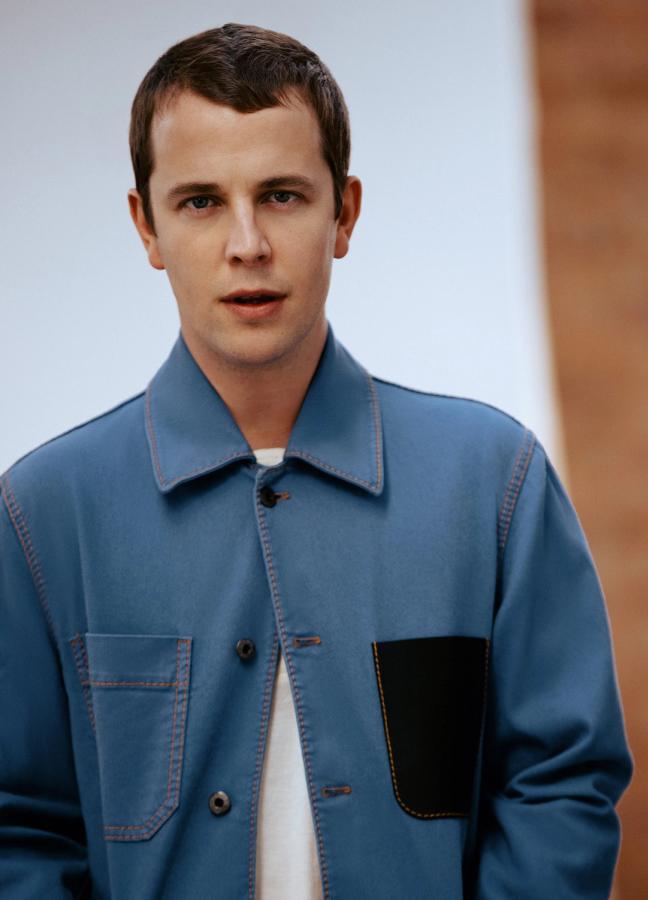
Factory Jacket, £1,820, tods.com
But Odell’s internal upheaval proved positive. He returned to his album, and “trimmed the artifice, the filters, the indulgence, off everything”, shifting all his attention to the reason he had written it in the first place: to address the chronic anxiety that had remained undiagnosed until he was rushed to hospital in 2018 with a panic attack so severe Odell had been convinced he was suffering a stroke.
Titled Monsters, the resulting record is a powerful collection of dark, electro-lined pop that is almost unrecognisable from the crowd-pleasing choral anthems and melancholy ballads about heartbreak that propelled the floppy-haired 21-year-old to global stardom after he was discovered by Lily Allen while performing at Ronnie Scott’s in 2012. (If you haven’t played Odell’s breakout hit Another Love while mooching morosely in the rain post break-up, then have you even loved at all?)
“I feel incredibly different to how I did before,” says Odell, instinctively raking his hand across his head to feel his freshly cropped hair — a new look for a new start. “Before the pandemic happened, I went through years of absolute hell.”
Odell doesn’t know when his anxiety began – he suspects he’s had it his entire life, a grating, incessant hum that even his music couldn’t drown out. It came to a head, however, after his break-up with model Sydney Lima in 2018, followed by a four-month stint in Los Angeles in 2019, where he had moved to try and write his album.
“Before the pandemic happened, I went through years of absolute hell…”
“I was having the worst time ever,” says Odell. “I was just so lonely, living in this house on Abbot Kinney in Venice, and there was this extreme wealth up against such extreme homelessness, and it was so disturbing, how everyone had become so blind to it. They’d walk to a charity function to give their money away, all the while ignoring the malnourished person on the street corner. I’m not saying I was the only person aware of it, it’s not like I’m the only empath, but it felt like everyone else had become desensitised.”
The experience directly inspired one of the best songs on the new record, Money — a cynically comic belter that wouldn’t sound out of place in a wacky West End musical — and, crucially, prompted Odell to interrogate the roots of his anxiety more specifically.
“I’ve always been obsessed with the news, but I’ve always kept politics away from my music. I’d spend the day in the studio and then go home and talk about inequality over pasta,” he says, mockingly self-aware. “I mean, I can’t read another article about Jeff Bezos, I just can’t do it. I realised it really, really contributes to my anxiety.”
Cotton-Oxford Bowling Shirt, £400, gucci.com; Cotton Rib Jumper, £195, sunspel.com
Issey Miyake Trousers, £280, matchesfashion.com; Ultraboost Trainers, £160, adidas.com
Slightly daunted by the weight of his own thesis, Odell stops to think, before triumphantly pulling out a quote from filmmaker Adam Curtis. “The other day, he said that while individualism has been positive in many ways, it’s also completely shifted our stance on mental health. It’s become our problem as individuals – we have to deal with it privately. When in fact, this mental health pandemic is a reflection of how broken and corrupt society has become. But we’ve stopped attributing our mental health problems to the wider fabric that we’re part of.
“And when I heard that I thought, f**k, that’s what I’ve been trying to write about all along. There are songs on the album about money, capitalism, about school shootings, and I realised that I’m trying to deal with my anxiety by trying to write about the things that are causing it. I feel like I am meant to say to you that I have anxiety because I had a deeply traumatic childhood, but actually I have anxiety because the world is f**ked.”
Odell and his older sister grew up in Chichester with his mother, a primary school teacher, and his father, an airline pilot, whose job meant the family relocated to New Zealand for much of Odell’s childhood. He spent his time listening to Tom Waits and Bruce Springsteen, and from the age of seven, he learned the piano with the help of the Elton John songbook. At 18, Odell then moved to Brighton to study at the British and Irish Modern Music Institute, where he tried his luck at open mic nights with his indie band, Tom and the Tides, all the while making ends meet as a local bartender.
But it wasn’t until Odell was ditched by said band and made redundant from his job that he was prompted to move to London to pursue a solo career and got his big break. After playing the London club circuit for two years, in 2012 he performed at Ronnie Scotts while Lily Allen was in the audience. Allen, who has said Odell’s energetic stage presence reminded her of a young David Bowie, signed him to her imprint on Columbia Records, and Odell released his debut EP, Songs from Another Love, which contained the chart-toppers Pretend and Another Love – a song so massive it now counts over 272 million plays on YouTube.
His debut album, Long Way Down, then went straight to Number One and sold platinum. Accolades and opportunities came thick and fast: a BRIT Award for Best Rising Star in 2013, an Ivor Novello for Songwriter of the Year in 2014, as well as a sync deal with the 2014 John Lewis Christmas advert and a congratulatory phone call from Elton John, who would then become his mentor.
Isabel Marant Sweater, £385, mrporter.com
Japanese Selvedge Denim Jeans, £275, drakes.com
While Monsters might not have the same immediate commercial appeal as his earlier work – which also includes 2016’s Wrong Crowd, about a man stifled by city life, and 2018’s Jubilee Road, about Odell’s love for his East London neighbours – the singer seems relieved to have cut himself loose from the cookie cutter critics had so often placed him in.
For instance Numb, Monsters’ first single, has production reminiscent of electronic wizards James Blake and Mica Levi, with eerie synths that burrow into your brain like a kind of sonic embodiment of Odell’s troubled mental state. Odell says he was particularly influenced by rappers XXXTentacion, Travis Scott and Drake — musicians known to rip up the rulebook.
“None of those guys pay attention to traditional songwriting and I think it’s amazing,” he says. “Like, why does a song need to be all one idea? Why can’t you just split a song in two? I was always so beholden to a certain form of songwriting, to the rules — I’ve studied these rules since I was 12. But then recently I’ve been listening to people who totally disrespect these rules. I had this real awakening. Just remove the form.”
Did the label have a problem with that? After all, playing it safe is what makes the majors money. Odell swings back on his chair and smiles mischievously. “If I’m being honest, I think that it was a fight, yes. I mean, you’ve only heard the safest songs on the album. But then again, I’m not f**king Shawn Mendes. I’m not making anyone that amount of money. No one’s sat in Barbados sunning themselves because of me.”
“But then again, I’m not f**king Shawn Mendes…”
The question has somewhat provoked Odell — the idea that his music and image are industry catnip is something that’s been bothering him for years. “You know, there’s been this constant misinterpretation of me, in my career that I’m somehow some sort of industry….creation. Look at my credits, all my songs are written by me, they’re all produced by me. And yet, there’s this idea from journalists that somehow I was creating the lowest common denominator music. People are so quick to judge us at the start of our careers. Yes, my first record is naive, but I was just 20 years old!”
Odell has been burnt by the media before. His debut album was cruelly awarded 0 out of 10 stars by NME, who equated the young musician’s prominence with “a dose of virulent syphilis” prompting Odell’s father to call the magazine to complain. “I understand it when journalists tear politicians apart,” he says. “But a young kid making music? Torn apart by a journalist old enough to be their parent? With the only outcome being that maybe that artist never works again, or other artists don’t want to follow that path? We’re meant to be encouraging young people to follow their passions. I sometimes think, if I’d known what I was putting myself up to, maybe I wouldn’t have done this.”
The vulnerability of people in the spotlight is something Odell is particularly sensitive to, having just watched The New York Times’ much-talked about Framing Britney Spears documentary, which put the pop star’s public mental breakdown in the context of her vilification in the media and by some of her peers. The week before we speak also marked a year since Love Island host Caroline Flack – who had faced vitriolic abuse from trolls on social media – took her own life. There is, I suggest, a reckoning at the heart of celebrity culture that seems long overdue.
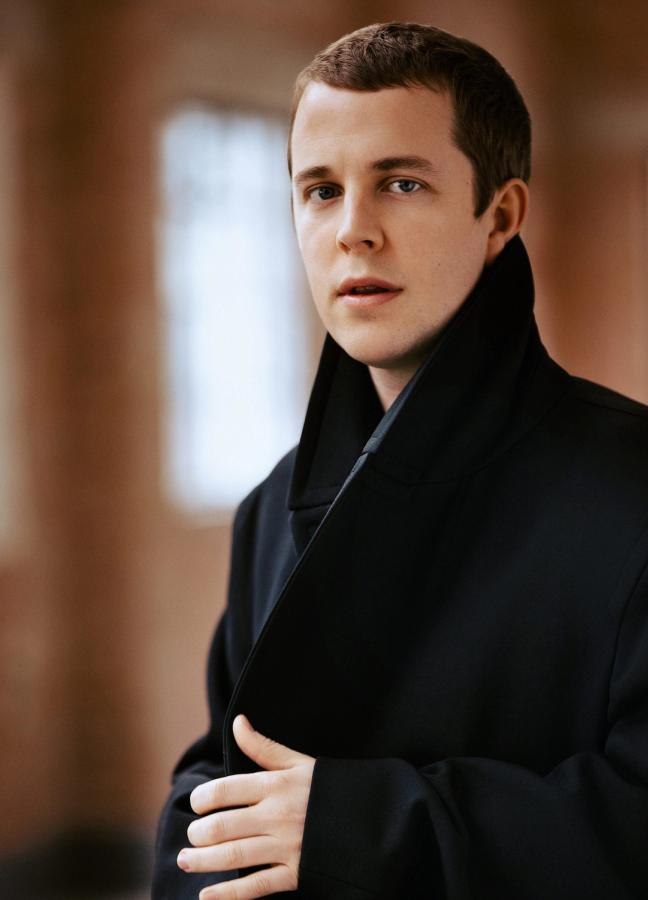
Mr. P Double-Breasted Virgin Wool and Cashmere-Blend Coat, £1,195, mrporter.com
“I have many strong opinions on this and probably shouldn’t go into it,” he wavers, “But I have really seen first hand, being on various TV shows, you know…” Odell tails off awkwardly, reticent to go into specifics. ‘Listen, I’m just pleased that this Britney conversation has happened. Because I think it’s a result of people in the public eye becoming more open. And maybe that’s what’s encouraging everyone to look at themselves.”
This is, I point out, at the heart of Odell’s new record too: a call for greater vulnerability, openness and empathy. His ideas, I notice, always have a rather satisfying way of coming full circle.
“I always thought that there was no point talking about my mental health because so many other people had it so much worse than me. I’ve had so much opportunity, so much privilege. I always thought talking about my mental health was just indulgent. But now I realise that actually, it’s the opposite. The most terrifying thing about mental illness is how lonely you can feel. But having made this album, I feel so much less lonely.”
Odell catches himself becoming sentimental — he is far less mushy in speech than he is in song — and laughs drily. “Look, I don’t think that this album is driven by some altruistic desire to cure the world of anxiety. It’s probably much more selfish than that. But even if this album helps just 10 people, then that would be good.”
As for the future, it certainly looks brighter for the young musician. He is in therapy, and swears by transcendental meditation for his anxiety. Just before Christmas, he proposed to his new girlfriend, model Georgie Somerville, and she said yes.
A few years ago, I remind him, he said he could only write songs when he was sad. Does he ever fear the stagnation that happiness may bring?
“No, I don’t worry about that. Happiness isn’t black and white — we are too complex. And at the end of the day,” Odell shugs, “this isn’t some Hollywood happy ending.”
Want more from UK musicians? Here’s how Tinie Tempah changed British music forever…
Become a Gentleman’s Journal member. Find out more here.
Further reading

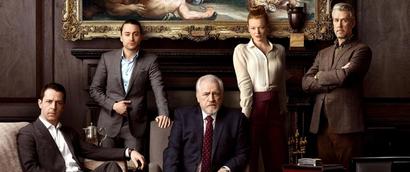
What Patek Philippe Was in Succession
